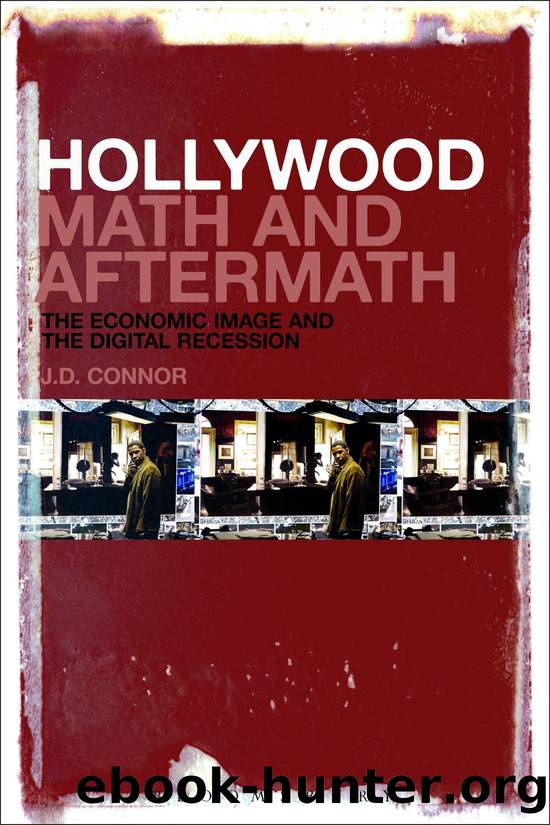Hollywood Math and Aftermath by J.D. Connor

Author:J.D. Connor
Language: eng
Format: epub
ISBN: 9781501314391
Publisher: Bloomsbury USA
5
The biggest independent pictures ever made
Last of the independents
Upon receiving his Lifetime Achievement Award from the Independent Feature Project in September 2002, Ang Lee was looking forward to his next picture, Hulk (Marvel/Universal), which was due to open the following summer: “I guarantee you it’s the biggest independent film ever made.”1 He had reason to be nervous. His longtime partner, the producer and writer of Hulk, James Schamus, had just sold his own company, Good Machine, to Universal and had agreed to head the studio’s new independent arm, Focus Features. Anthony Kaufman of the Village Voice was apocalyptic: “The death of American independent film has been prophesied more than once over the last few years, but finally we have a date on which to pin our grief.”2 If Lee also seemed slightly embarrassed, some of that feeling was a hangover from Schamus’s rather infamous IFP keynote address in 2000. Schamus had argued, somewhat tongue-in-cheek, that the IFP should be shut down and started anew. It should be shut because, simply, the indies had won. “The IFP has already, and fabulously, achieved its goals.”3 The indie market had grown exponentially alongside the expansion of the media conglomerates, while at the same time those major players were making more and more films with an “‘independent’ feel.” “The successful integration of the independent film movement into the structures of global media and finance has wrought untold benefits to American filmmakers.” He was, many felt, far more gracious than necessary when he argued that “there is no logical reason why the towering artistic achievements of films like Boys Don’t Cry and Election, brought to us by the News Corporations and Viacoms of this world, should not be celebrated, and we ought to be genuinely grateful that caring and savvy people who work for those corporations have cleared a path in the marketplace for these kinds of films.”4 In place of the de rigueur defense of independent film, Schamus contended that the IFP should defend independent expression more generally—fighting the extension of the conglomerates, supporting local distribution networks around the world, working to repeal parts of the Telecommunications Act of 1996. If this speech was the theory, the integration of Good Machine into Universal and the launching of Hulk were the practice.
Six years after Lee’s guarantee and eight years after Schamus’s rant, Mark Gill, speaking at the Los Angeles Film Festival, announced, “Yes, the sky really is falling.”5 Surveying the landscape of studio-based indie labels and real indies, he noted the implosion of various production companies (Warner Independent and Picturehouse, New Line and ThinkFilm), the evaporation of Wall Street financing (this even before the credit panics later that summer), skyrocketing production and marketing costs, and the generally bleak competition for leisure time and dollars. It was clear from his title that an epoch had passed, and in what followed he offered ways to navigate through what would remain of the indie sector.
Paradoxically, the notion of independence was more prominent than ever. Gill noted that “for
Download
This site does not store any files on its server. We only index and link to content provided by other sites. Please contact the content providers to delete copyright contents if any and email us, we'll remove relevant links or contents immediately.
Whiskies Galore by Ian Buxton(40727)
Introduction to Aircraft Design (Cambridge Aerospace Series) by John P. Fielding(32368)
Small Unmanned Fixed-wing Aircraft Design by Andrew J. Keane Andras Sobester James P. Scanlan & András Sóbester & James P. Scanlan(32155)
Craft Beer for the Homebrewer by Michael Agnew(17473)
Turbulence by E. J. Noyes(7082)
The Complete Stick Figure Physics Tutorials by Allen Sarah(6658)
Kaplan MCAT General Chemistry Review by Kaplan(6085)
The Thirst by Nesbo Jo(5819)
Bad Blood by John Carreyrou(5799)
Learning SQL by Alan Beaulieu(5446)
Weapons of Math Destruction by Cathy O'Neil(5070)
Man-made Catastrophes and Risk Information Concealment by Dmitry Chernov & Didier Sornette(4778)
iGen by Jean M. Twenge(4714)
Digital Minimalism by Cal Newport;(4611)
Life 3.0: Being Human in the Age of Artificial Intelligence by Tegmark Max(4536)
Audition by Ryu Murakami(4124)
Electronic Devices & Circuits by Jacob Millman & Christos C. Halkias(4063)
1,001 ASVAB Practice Questions For Dummies by Powers Rod(4057)
Pale Blue Dot by Carl Sagan(4031)
